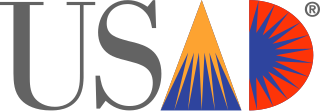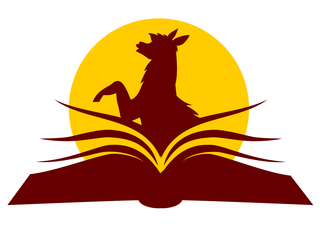Awards
As part of the registration fee, ACTR provides "medals" for each participant, based on score. Each region may choose to give out its own award to the highest-scoring student, although this is not required. The University of Washington, which sponsors the Washington–Oregon competition, awards the Nora Holdsworth Scholarship (full tuition to the University of Washington Summer Russian program). Each year, the top finalists from each region are invited to the Olympiada Study Abroad Program, which includes a homestay in Vladimir, Russia. The program includes language and culture classes and tours in the region of the Golden Ring. ACTR greatly subsidizes this trip, making it possible for students who would otherwise not be able to afford it. The number of finalists invited from each region depends on the number of students competing. Students in the highest level and heritage speakers are eligible; native speakers are not. Only one finalist is allowed per school; students who have been finalists before are not allowed to win a second time.
Every three years (2001, 2004, 2007...) the top finalists are invited to be part of the US delegation to the International Olympiada of Spoken Russian held in Moscow. After the competition, the students continue to the homestay in Vladimir.
Test of English as a Foreign Language is a standardized test to measure the English language ability of non-native speakers wishing to enroll in English-speaking universities. The test is accepted by more than 11,000 universities and other institutions in over 190 countries and territories. TOEFL is one of several major English-language tests in the world, others including IELTS, Cambridge Assessment English and Trinity College London exams.

The International English Language Testing System, is an international standardized test of English language proficiency for non-native English language speakers. It is jointly managed by the British Council, IDP: IELTS Australia and Cambridge Assessment English, and was established in 1989. IELTS is one of the major English-language tests in the world.

The National Geographic GeoBee was an annual geography contest sponsored by the National Geographic Society. The bee, held annually since 1989, it is open to students in the fourth through eighth grades in participating schools from the United States.
The Preliminary SAT/National Merit Scholarship Qualifying Test (PSAT/NMSQT) is a standardized test administered by the College Board and cosponsored by the National Merit Scholarship Corporation (NMSC) in the United States. In the 2018-2019 school year, 2.27 million high school sophomores and 1.74 million high school juniors took the PSAT. Scores from the PSAT/NMSQT are used to determine eligibility and qualification for the National Merit Scholarship Program.
Individual events in speech include public speaking, limited preparation, and acting and interpretation and are a part of forensics competitions. These events do not include the several different forms of debate offered by many tournaments. These events are called individual events because they tend to be done by one person unlike debate which often includes teams. This distinction however is not entirely accurate any more given the addition of duo interpretation events and forms of single person debate. Competitive speech competitions and debates comprise the area of forensics. Forensics leagues have a number of speech events, generally determined by geographical region or league preference. While there are several key events that have been around a long time, there are several experimental events around the country every year that can be limited to individual tournaments. Forensics leagues in the United States includes the National Speech and Debate Association, the National Christian Forensics and Communications Association, the American Forensics Association, the National Forensics Association, the Interstate Oratorical Association and Stoa USA. Organized competitions are held at the high-school and collegiate level. Outside of the rules for each event provided by the individual leagues, there are several cultural norms within each region that are not written into law but are almost always followed. Rules for time limits vary by event and by individual tournaments, but there are penalties in every event for exceeding the time limits though the severity of the penalty widely varies.

The Academic Decathlon is an annual high school academic competition organized by the non-profit United States Academic Decathlon (USAD). The competition consists of seven objective multiple choice tests, two subjective performance events, and an essay. Academic Decathlon was created by Robert Peterson in 1968 for local schools in Orange County, California and was expanded nationally in 1981 by Robert Peterson, William Patton, first President of the new USAD Board; and Phillip Bardos, Chairman of the new USAD Board. That year, 17 states and the District of Columbia participated, a number that has grown to include most of the United States and some international schools. Patton and Bardos served on the board in these two executive positions for the first 10 years of the USAD and not only personally contributed significantly both financially and in personal effort to the organization in those early day when there were no corporate sponsors they, along with Robert Peterson, were the major three factors in bringing corporate sponsors to the program during these challenging growth years eventually resulting in a financially self sustaining organization. In 2015 Academic Decathlon held its first ever International competition in Shanghai, China. Once known as United States Academic Decathlon, on March 1, 2013, it began operating as the Academic Decathlon.

Science Olympiad is an American team competition in which students compete in 23 events pertaining to various fields of science, including earth science, biology, chemistry, physics, and engineering. Over 7,800 middle school and high school teams from 50 U.S. states compete each year. U.S. territories do not compete; however, since 2012 high school teams from Japan have competed at the national tournament as unranked guests.
Extemporaneous Speaking is a speech delivery style/speaking style, and a term that identifies a specific forensic competition. The competition is a speech event based on research and original analysis, done with a limited-preparation; in the United States those competitions are held for high school and college students. In a Extemporaneous Speech competition, enrolled participants prepare for thirty minutes on a question related to current events and then give a seven-minute speech responding to that question. The extemporaneous speaking delivery style, referred to as "off-the-cuff", is a type of delivery method for a public presentation, that was carefully prepared and practiced but not memorized.
The AAA Travel High School Challenge was an annual travel-themed scholarship competition run by the American Automobile Association, open to students in grades 9–12 in the fifty United States and the District of Columbia. First run in 2003 as part of AAA's centennial celebrations, the competition became an annual event and a premier high school scholarship program for a time. The competition was notable for its national coverage
The Texas Math and Science Coaches Association or TMSCA is an organization for coaches of academic University Interscholastic League teams in Texas middle schools and high schools, specifically those that compete in mathematics and science-related tests.
The Secondary School Admission Test (SSAT) is an admission test administered by The Enrollment Management Association in the United States to students in grades 3–11 to provide a standardized measure that will help professionals in independent or private elementary, middle, and high schools to make decisions regarding student test taking.
Advanced Placement (AP) Statistics is a college-level high school statistics course offered in the United States through the College Board's Advanced Placement program. This course is equivalent to a one semester, non-calculus-based introductory college statistics course and is normally offered to sophomores, juniors and seniors in high school.
Advanced Placement (AP) Latin Literature was one of two examinations offered by the College Board's Advanced Placement Program for high school students to earn college credit for a college-level course in Latin literature.
The Test of English Proficiency developed by Seoul National University or TEPS is an English proficiency test created by Seoul National University's Language Education Institute to evaluate South Korean test takers' English language skills. TEPS has been administered nationwide since January 1999. It consists of 200 questions which are divided into four sections: Listening, Grammar, Vocabulary, and Reading. TEPS scores are divided into the ten ratings ranging from 1 + to 5. It is designed to test applicants' communicative English skills and to minimize test-taker reliance on certain strategies such as rote memorization. A study of the test indicated that it is valid and fair.
The Diplôme d'études en langue française or DELF for short, is a certification of French-language abilities for non-native speakers of French administered by France Education International for France's Ministry of Education. It is composed of four independent diplomas corresponding to the first four levels of the Common European Framework of Reference for Languages: A1, A2, B1 and B2. Above this level, the "Proficient User" divisions are certified by the DALF. The examinations are available in four varieties:"DELF Prim" which is for Primary School students, "DELF Junior et Scolaire" which is aimed at Secondary School students, "DELF Tous Publics" which is aimed at adults and "DELF Pro" which is aimed at people who would like to work. Each variety is worth exactly the same and results in the awarding of the same diploma, but the material is varied to ensure that it is appropriate for the target cohort. DELF certificates are valid for life and do not expire.
C2 Proficiency, previously known as Cambridge English: Proficiency and the Certificate of Proficiency in English (CPE), is an English language examination provided by Cambridge Assessment English.
B2 First, previously known as Cambridge English: First and the First Certificate in English (FCE), is an English language examination provided by Cambridge Assessment English.

The World's Scholar Cup is an international team academic program with more than 15,000 students participating from over 65 countries every year. The program was founded by DemiDec, in particular by Daniel Berdichevsky, in 2006. First taking place in South Korea in 2007 at the Hankuk Academy of Foreign Studies, the World Scholar's Cup aims to teach students with interesting, not-taught-in-schools lesson, and finding common ground between people of different statuses.
Literary Criticism is one of several academic events sanctioned by the University Interscholastic League in Texas, USA. The contest began in the 1986–87 school year.

The ICFESexamination, or Saber 11, is a high school exit examination administered annually in grade 11 in Colombian high schools. The exam is standardized, similar to the SAT and ACT examinations taken by high school students in the United States. The purpose of the exam is to evaluate students' aptitude in five subjects: critical reading, mathematics, social studies, science, and English. Each exam question has four multiple-choice answers, except for the English section which provides between three and eight possible answers for each question.





